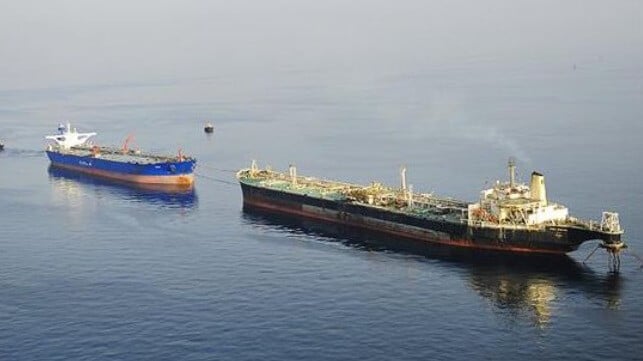Trump: China Can Continue to Purchase Oil From Iran

On Tuesday, after declaring a ceasefire agreement between Israel and Iran, U.S. President Donald Trump gave what many viewed as a green light for China to continue purchasing U.S.-sanctioned Iranian oil. The announcement appears to mark a sudden end to the administration's policy of "maximum pressure" on Iran's energy economy.
Chinese refiners buy an estimated 90 percent of all Iranian oil exports, hidden via ship-to-ship transfer and rebranded on false bills of lading. "Shadow fleet" tankers transfer this discount oil - much of it loaded at anchorages off Malaysia - and deliver it to privately-owned refineries in Shandong, among other locations.
In February, the Trump administration announced that it would be tightening enforcement of sanctions on the Iranian energy value chain, pursuing "maximum pressure" on Iran's nuclear program. Multiple rounds of sanctions listings followed, hitting midsize Chinese refiners like Hebei Xinhai and Shandong Shengxing Chemical Company.
Fears of a Trump administration crackdown reportedly prompted half a dozen Shandong-based facilities to stop buying Iran's oil out of fear of blacklisting, according to Reuters. This appears to have had the desired effect: Per Bloomberg, Iran's oil exports to China fell 20% year-on-year in May.
On Tuesday, in a series of messages about the ceasefire, Trump said on his social media platform that “China can now continue to purchase oil from Iran." The unexpected announcement left some analysts with the impression that the administration was rolling back its successful enforcement campaign.
"President Trump's greenlight for China to keep buying Iranian oil reflects a return to lax enforcement standards," said Scott Modell, CEO of Rapidan Energy Group, speaking to Reuters.

that matters most
Get the latest maritime news delivered to your inbox daily.
The situation continues to evolve rapidly, and the outcome may well depend on Iran's actions. On Tuesday, Iran's nuclear agency pledged to resume its uranium-enrichment program - the same program that prompted the administration to impose stricter enforcement earlier this year.
Later Tuesday, the White House attempted to clarify that Trump's statement was not a change in sanctions policy, and that the president referred only to China's continued access to the Strait of Hormuz - the route for Iran's oil to reach global markets. “The president continues to call on China and all countries to import our state-of-the-art oil rather than import Iranian oil in violation of US sanctions,” the spokesperson told SCMP.
